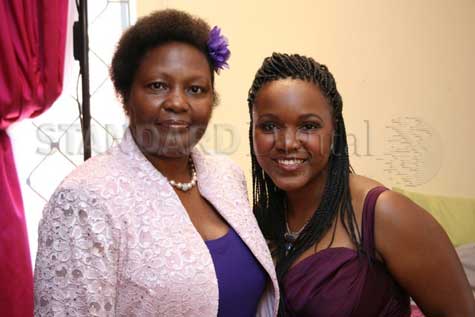×
The Standard e-Paper
Smart Minds Choose Us
 |
| Bilha Gichuru with her daughter,Joy Waruguru after Bilha’s breast reconstruction.[PHOTO:NJOKI CHEGE] |
It is Breast Cancer Awareness Month and this year, we choose to focus on life after mastectomy. Breast reconstruction after mastectomy is a trend that is fast gaining momentum, as Njoki Chege found out
My triumph over cancer